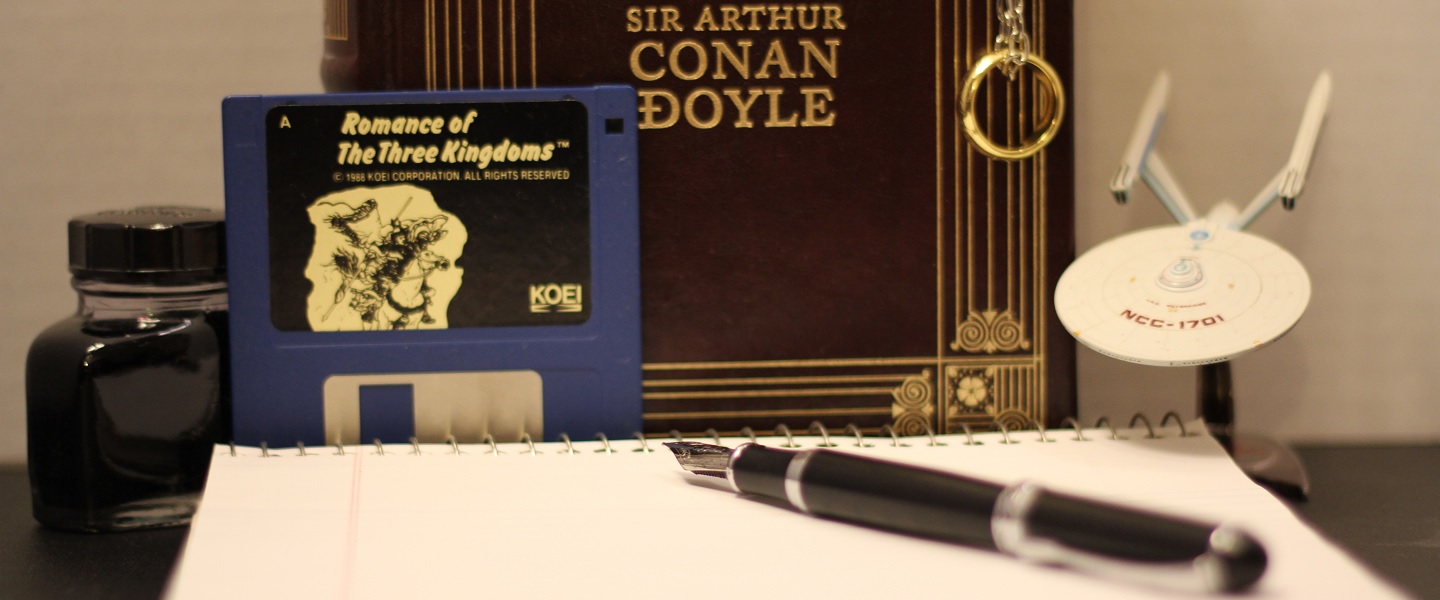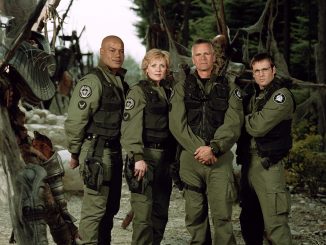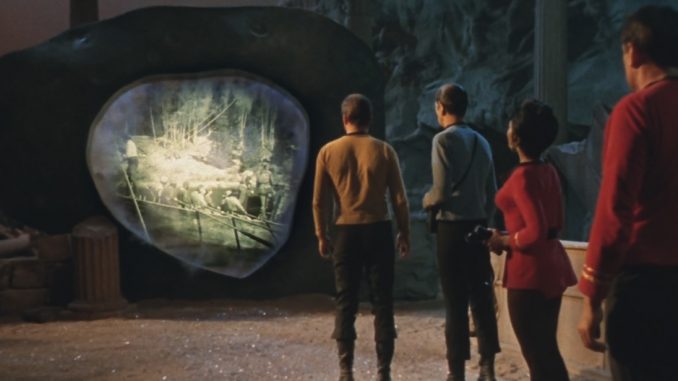
Love. It is one of the most positive and powerful emotions we can experience. But it can also be the most dangerous. Where one might commit selfless acts of sacrifice in the name of love, another can commit the most heinous acts ever witnessed. Yet what about sacrificing the one you love to save other people? In Star Trek: The Original Series, Captain Kirk is faced with this dilemma in the fan favorite episode “The City on the Edge of Forever.” And it is one of mine as well which really got me to ponder this question as a child.
But before I talk more about this, let me provide you with a recap of the episode.
(Complete Spoilers for “City on the Edge of Forever Season 1 Episode 28)
The episodes begins when Dr. McCoy accidentally injects himself with a large amount of medication that results in him becoming delusional and paranoid. While in this state, he transports himself down to the planet that the USS Enterprise is currently orbiting. Captain Kirk, Mr. Spock, Lt. Uhura, Scotty, and a couple of security guards beam down in pursuit of McCoy. There they discover a large, sentient device which calls itself the Guardian of Forever and has the ability to send anyone, anywhere in time.
As the Guardian is showing past events, with Kirk and company observing, McCoy appears out of nowhere and throws himself into the portal. Upon entering, there is an immediate change to the timeline. The now-stranded Enterprise crew discover that there is no ship in orbit and no Federation to contact. So Kirk and Spock follow McCoy back in time to prevent him from doing whatever it is that he did to the timeline.
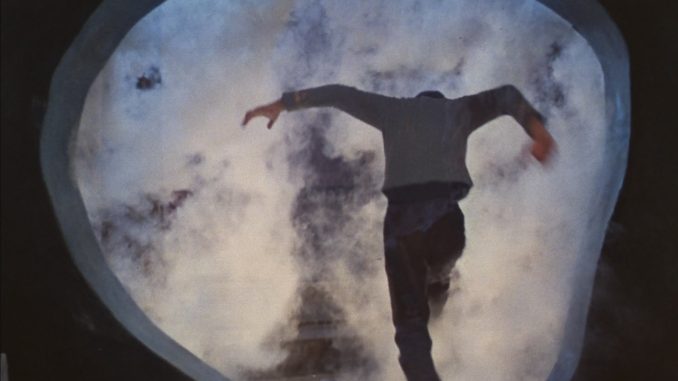
Upon entering, Kirk and Spock find themselves in New York City during the Great Depression of the 1930s. However, they have arrived before McCoy has appeared and must try to stay inconspicuous during their time there. While waiting, they meet and befriend a woman by the name of Edith Keeler who runs a small mission. As Spock attempts to create a crude computer interface to try and determine what McCoy did to change history, Kirk finds himself spending time with Edith. Over time, he falls in love with her and finds out that she is not only a humanitarian but a visionary with a positive outlook on the future of mankind.
With Kirk falling in love with Edith, McCoy finally appears. Still suffering from the effects of the overdose, he stumbles into the mission that Edith runs where she begins to nurse him back to health with Kirk and Spock unaware that their friend has arrived. As McCoy recovers, Spock has been sifting through the data and realizes that Edith is the focal point where the timeline has been changed.
According to history, she was supposed to have died in a traffic accident. Instead of dying, McCoy saved her and she went on to lead a pacifist movement which resulted in delaying the United States from entering World War II. That delay allowed the Nazis to develop the atomic bomb first and conquer the world.
So in order to fix the timeline, Kirk realizes that he will have to allow the woman he loves to die.
But can he do that?
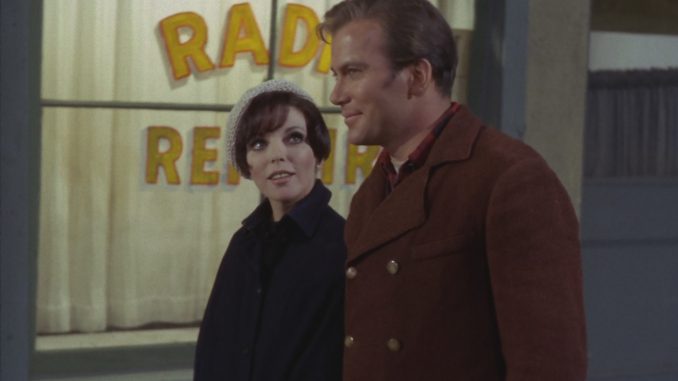
Shortly after making this discovery, Kirk instinctively saves Edith when she starts to fall down some stairs. An action that Spock witnesses and prompts him to remind Kirk that she has to die stating, “Save her. Do what your heart tells you to do. And millions will die that did not die before.”
Personally, this scene always resonated with me. For me, what Spock says here means that sometimes we have to sacrifice those we love for the greater good. When their death could save the lives of others.
But inevitably, the conclusion of this episode had to arrive. And so Kirk and Edith are on their way out for a date. They cross the street opposite of the mission and Edith mentions McCoy’s name while they are talking. Surprised, Kirk tells Edith to stay where she is as he runs across the street, to the mission, while shouting for Spock. At the same time, McCoy exits the mission and the crewmates are reunited.
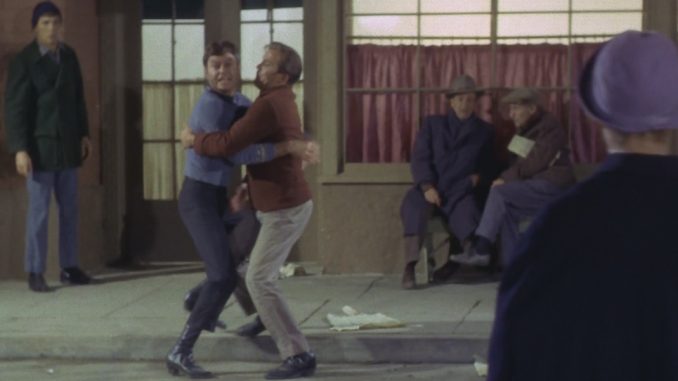
As the friends are talking to each other, Edith begins to cross the street to join the three crewmates. Instantly, Kirk turns in her direction and sees her crossing the street as a truck is barreling down the road towards her. Kirk starts to go towards her, with Spock saying “No” which stops him from moving or saying anything and, when McCoy notices the truck and tries to save her, Kirk holds onto the doctor. As Kirk struggles to hold McCoy back, his face shown buried in McCoy’s shoulder with the pain he is feeling etched on his face, Edith screams as the truck hits her.
McCoy, shocked that Jim stopped him says, “You deliberately stopped me Jim. I could have saved her. Do you know what you just did?”
Without any reply, Kirk walks away with the grief still etched on his face as Spock answers for him, “He knows doctor. He knows.”
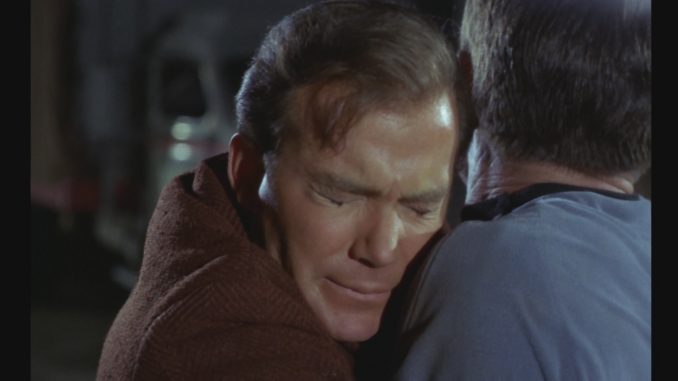
It’s a sad, thought-provoking episode that is still considered one of the best to watch out of all the Star Trek shows and for good reason. It offers up a scenario to the viewer where a man must sacrifice the woman he loves so that millions will live. That history will stay the same for the better.
For me, it shows that Kirk had the ability to make the hard choice. That there are times where the love for someone must be ignored for the good of others. Yet, it is an excruciatingly tough thing to consider, let alone nigh almost impossible for people to consciously allow to happen. It is far easier for someone to sacrifice themselves rather than sacrifice a loved one.
And it is not something you hear about often in real life. The Bible contains the penultimate sacrifice coming from God himself by allowing His Son Jesus to die. Then there is Brutus, who Julius Caesar loved like a son and, in his will, would have Brutus be the guardian of any child Julius had. Yet Brutus, for the sake of Rome, participated in the assassination of Julius Caesar. Another example, for my younger readers, you have (SPOILER FOR GAME OF THRONES SERIES FINALE) Jon Snow who kills Daenerys, the woman he has fallen in love with, who had now become a threat to the kingdom.
You could also look at examples of Kings and Queens who were not allowed to marry the person they love because it was not in the best interest of their kingdom (though that didn’t stop some from sleeping with that person anyways). Military history is also filled with accounts of commanders who sacrificed their friends by ordering them into a dangerous fight, knowing that there was a good chance they would die.
But yet, this type of thinking is few and far between. In fact, you would be hard-pressed to find such examples. It also goes against the natural instinct of protecting those we love to the extent that most people won’t make such a sacrifice, no matter how many people such a sacrifice might save.
However, there was one other thing that the episode glossed over which hit me as a kid. It was the brief discussion regarding the pacifist movement and the theoretical effect it could have had on World War II if Edith Keeler had lived. Upon discovering what Edith would accomplish, should she survive, Kirk states that, “she was right. Peace was the way.”
But Spock offers an interesting observation when he says, “She was right. But at the wrong time.”
I found Spock’s observation to be rather poignant. As much as the majority of people want peace, there will always be those who will find a reason to fight. It seems that all we can do is lessen the number of casualties along the way and that sucks. I feel that what Spock says is something that could also be applied to our foreign policy in a way. Especially regarding those countries that are hostile to our way of thinking and how we live. Countries that would try to impose their will upon us. But this is a topic that I will revisit in future posts in this series since the topic comes up again in Star Trek.
However, I would ask you this: if you had to sacrifice the person you love to save even 10 people, would you do it? Is there any scenario where you might actually do it? For Kirk, it was to restore the timeline and save millions, if not billions of lives. What would you do if you had been in Kirk’s shoes?
